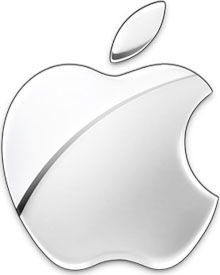@Marfig: The hostile takeover price is roughly included in my Market x2 price. Companies rarely hold 1/3 treasury stock, and the increase in purchase price (goodwill) during a hostile takeover brings us up to...well, you can see the math in there now, I'm sure.
Yup.
Anyhow, I agree that it could be beneficial for Apple to go outside of its normal market as far as portfolio diversification is concerned, but that's just not the company's MO.
Careful. It was exactly the exploration of a new market that which saved Apple from an eventual bankruptcy. Although I admit that once you are on pole position of your new market, there's little incentive to diversify. In that sense I agree.
However, I don't see how Apple can secure for long a dominant position in the market of mobile devices. It already lost it on the smartphones business and it will eventually cave in to the efforts of its many competitors on the tablet business. It's just a fact of life that in this industry, the innovators lose market share. After all, where can you go after you become the dominant species? Only in one direction.
Question then is, how will you be when you are faced in a situation where shareholders start selling in lieu of a new and more exciting kid in the block? With just your core business to account for, you might be in trouble.
Diversified conglomerates largely sustain and service product markets instead of move them, as gains in one sector end up being used partly to cover losses in another sector. It's part of the problem that MS experiences, and why its share price has languished for years on end - the company no longer has the cash capable in any one sector to drive or innovate much, because when a sector has good years the funds get funneled to maintain bad years in others, and a bad year in those can often be just plain bad, forever.
True, true. Although I think there's more to it. The matter of fact is that companies like Intel, IBM, Microsoft, Exxon, and many others offer a lot more security to investors than an upstart innovators like Apple who may just lose it all "in one day".
While their shares seem to fluctuate like a placid lake, they have however cemented themselves in their industries and are as inevitable as the markets themselves. And they innovate. On a constant basis. It's a false belief that these companies aren't pushing the technology envelope of innovation.
What happens instead is that the financial markets are motivated by perceived stock opportunities, which upstart innovators are particularly permeable for. It's why we had a dot-com bubble. It's also a lot easier and cheaper to push the stock price of a company which comes from behind the lines with an interesting and easily marketable product. However, companies like Intel, IBM, Microsoft, Exxon, etc are much more valuable than what their stock price says they are. In function of their position, they ended up locking themselves "above" the financial markets influence. This does make it harder for them to increase their value, but it gives them the needed peace of mind that they can at least hope to control their stock prices highs and lows.
Think of the Zune, and think of if MS had instead been able to use all that money towards making Windows or Office into a better product.
Nah. I don't think their problem is sharing the bad results among other divisions. The problem with Microsoft is in my opinion the bad policies that took place over the last 10 years and that have slowly eroding the interest of potential workers on the company.
Microsoft can hardly convince anyone who matters to go work for them, these days. Its benefits packages, internal evaluation policies and general working environment have been underfire by even Microsoft employees and administrators. There used to be a time when Microsoft was the Google of a few years ago, or the Valve or Apple of our times. When securing a job at Microsoft was a lifetime achievement a a cause for great celebration.
Today the company isn't sought out by new brains and isn't just attractive enough to potential workers. Sure they do get very competent and qualified people on certain key and established divisions (the server division for instance). But when trying to get something new into the market, the company has been struggling hard to get good people from the job market and falls too easily prey to internal conflict; a practice that has become very common due in great part to the company disastrous internal policies. Zune was such a case; internal conflicts stopped this project from being gutted right at birth and ended up with millions lost on a white elephant. That and the bleeding of a few more good workers because they had enough of Microsoft.


